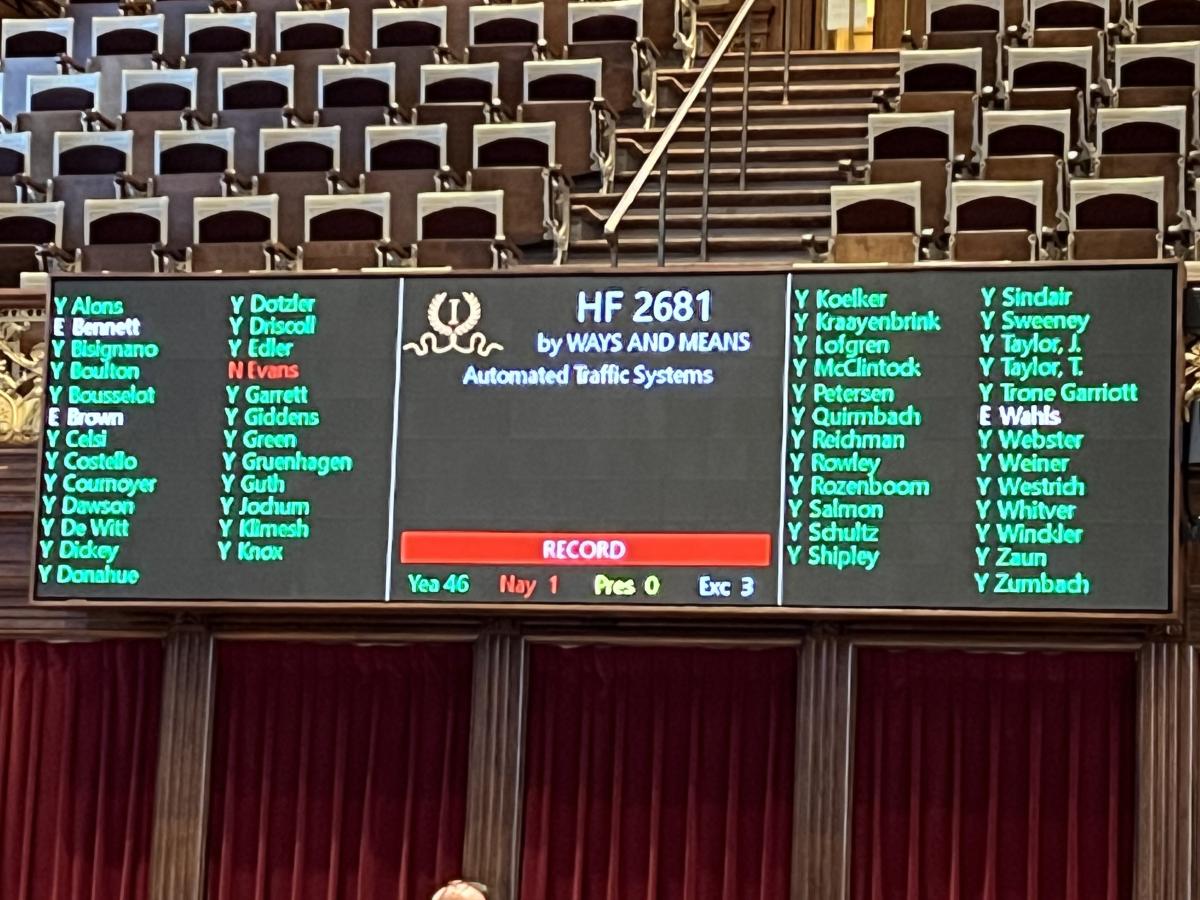The legislative session of 2024 has come to an end. This session marked several significant achievements as we navigated through various substantial issues over the course of the year. The Senate remained steadfast in its dedication to initiatives aimed at broadening healthcare accessibility, bolstering public safety for Iowans, safeguarding Iowa’s agricultural sector, and prioritizing the interests of Iowa taxpayers.
Expansions to Medicaid benefits were secured for pregnant women truly in need of assistance, while a new behavioral health service framework was established for mental health and addictive disorder treatment. We implemented common-sense regulations and oversight concerning Iowa's consumable hemp law to safeguard citizens from hazardous products and bad actors.
Addressing shortcomings at the federal level, Senate File 2340 was enacted, criminalizing illegal immigration within Iowa. Penalties were heightened for false reports to law enforcement, retirement benefits for sheriffs and deputies were augmented, and looting was criminalized.
Protecting Iowa's land was prioritized through strengthened foreign land ownership laws, ensuring transparency regarding land ownership and activities. Further measures were taken to fortify Iowa's agriculture sector, including enhanced labeling transparency for meat and eggs to empower consumers with information about their food.
We reinforced the selection of the most qualified individuals for boards and commissions, established protections for Iowans with sincerely held religious beliefs, and prohibited ineffective spending programs by certain municipalities. Taxpayer safeguards were enacted, including a flat tax constitutional amendment and a requirement for a supermajority to raise taxes in Iowa.
The 2024 session stands as a significant victory for Iowans, with substantial legislative achievements addressing the concerns and priorities of the state's residents. As we return to our districts, we eagerly anticipate engaging with constituents, sharing our successes, and spending quality time with our families.
This week, the Senate approved a bill aimed at enhancing student literacy levels in Iowa schools. House File 2618 mandates that teacher preparation programs administer the Foundations of Reading assessment and annually report the results to the Department of Education (DE), detailing the percentage of students scoring above, at, and below the passing threshold. Furthermore, each school district is obligated to notify the parent or guardian of any kindergarten through sixth grade student who falls short of proficiency in reading. Should a student in grades K-6 demonstrate inadequate reading proficiency, the school district is required to devise and implement a personalized reading plan until the student achieves grade-level proficiency.
Another matter that has captured widespread attention over the years is the issue of traffic cameras. There have been numerous proposals to either ban these cameras outright or impose more comprehensive regulations on their usage, though many of these bills have faced hurdles in the legislative process. This year, the Senate successfully advanced House File 2681, which was subsequently submitted to the governor for approval. This legislation specifically addresses and regulates three types of traffic cameras: speed cameras, automatic license plate reader cameras, and mobile traffic cameras.
While the bill introduces a range of regulations governing the operation of these traffic cameras, the focus of public interest primarily centers on speed cameras. Municipalities and counties seeking to install speed cameras must undergo an application and permitting process overseen by the Department of Transportation (DOT). The DOT has the authority to grant permits if the local authorities can demonstrate that a speed camera is deemed "appropriate and necessary" and represents the least restrictive means for addressing traffic hazards at the proposed location. Additionally, local authorities are restricted in the use of fine revenue, which may only be allocated to finance speed camera installation and operation, transportation infrastructure enhancements, or police and fire department activities.
Poll workers serve a critical role in Iowa’s elections process! They check-in voters, make sure they have the correct ballot, answer questions, and help ensure elections run smoothly in each precinct. They’re needed in all 99 counties for the June Primary and November General Election.
Poll workers are civic-minded Iowans who want to serve their communities and ensure safe and secure elections for their neighbors. For partisan elections, poll worker teams are required by law to be bipartisan. When Iowans vote on Election Day, they can rest assured that their vote will be counted safely, securely, and accurately when they see trusted faces from their community at the polls. Sign up to serve your community as a poll worker. Visit Pollworker.Iowa.Gov today!
I encourage my constituents to contact me using my legislative email with any comments, questions, or concerns. I look forward to another great week of representing the people of District 42!

Comments
Submit a CommentPlease refresh the page to leave Comment.
Still seeing this message? Press Ctrl + F5 to do a "Hard Refresh".